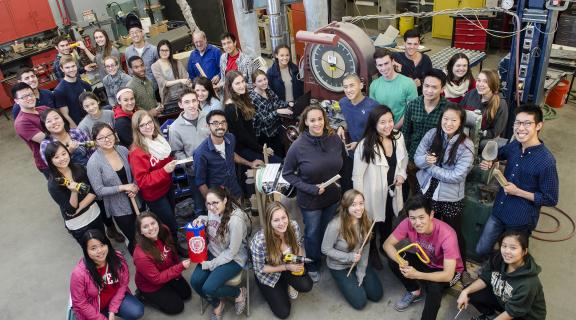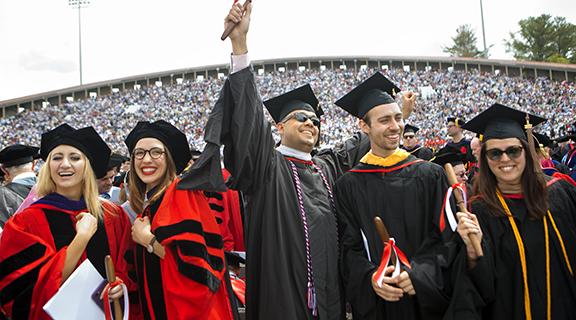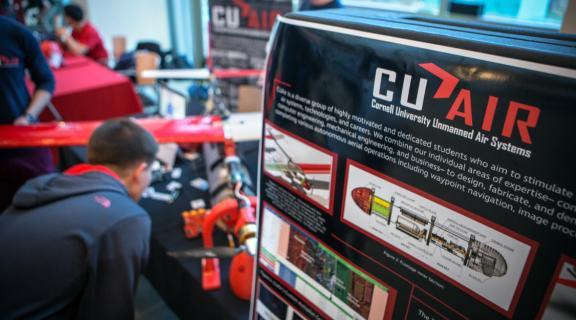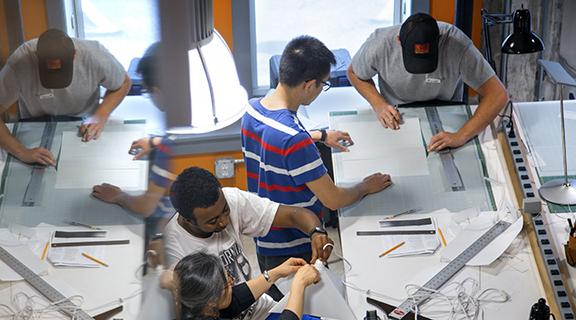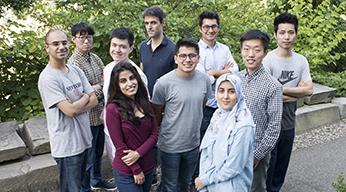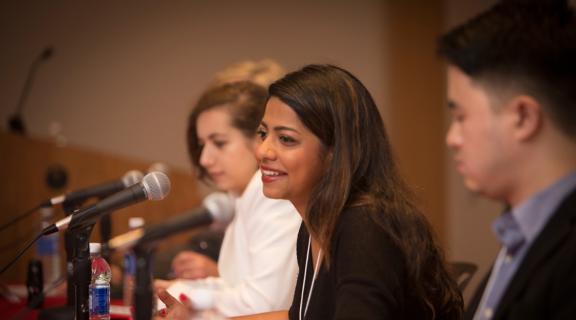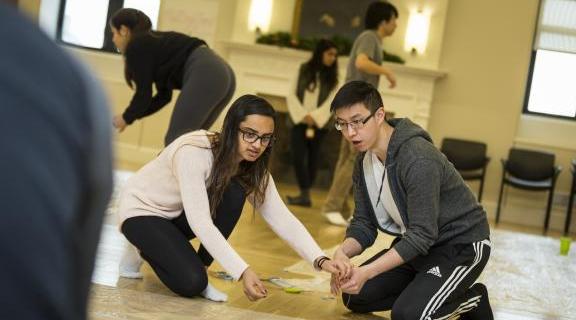
Admissions
Why Cornell Engineering?
"Scientists study the world as it is; engineers create the world that never has been."—Theodore von Karman
Cornell engineers challenge the status quo and do great things. Steeped in an environment of questioning, and with a focus on innovation, Cornell Engineering pursues excellence in all areas. Its faculty, students, and alumni design, build, and test products, improve the world of medicine, inform and shape our laws, create and drive businesses, become research luminaries, and overcome real and perceived barriers to achieve scientific breakthroughs that advance the quality of life on our planet.
We invite you to learn more about Cornell Engineering and its programs.
Did you know?
In 2012, Prof. Alexander Gaeta and his team developed a “temporal cloak,” that could camouflaged a moment in time. This was achieved by interrupting a beam of light, passing some information through the gap, and then creating a process for stitching the original beam back together so that when it reaches its destination, there is no sign of the beam being interrupted.
In the late 1800s, Cornell Engineering awarded the nation’s first doctorates in Industrial Engineering and electrical engineering.
In 2013, the Cornell University Satellite, a nanosatellite designed and built by students, was launched into space. It used a new algorithm called Carrier-phase Differential GPS (CDGPS) to calibrate global positioning systems to an accuracy of 3 millimeters and allows multiple spacecraft to travel close together.
David Duffield, (Electrical Engineering, B.S., 1962), the namesake for Duffield Hall, is the founder of two ultra-successful enterprise software companies: PeopleSoft and Workday. Dufffield’s foundation Maddie’s Fund has supported no-kill animal shelters, including Tompkins County SPCA.
In 1971, Prof. Don Greenberg produced, an early sophisticated computer graphics movie, Cornell in Perspective, using the General Electric Visual Simulation Laboratory with the assistance of its director, Quill and Dagger classmate Rodney S. Rougelot. An internationally recognized pioneer in computer graphics, Greenberg has authored hundreds of articles and served as a teacher and mentor to many prominent computer graphic artists and animators, including 5 former students who have won Academy Awards.


